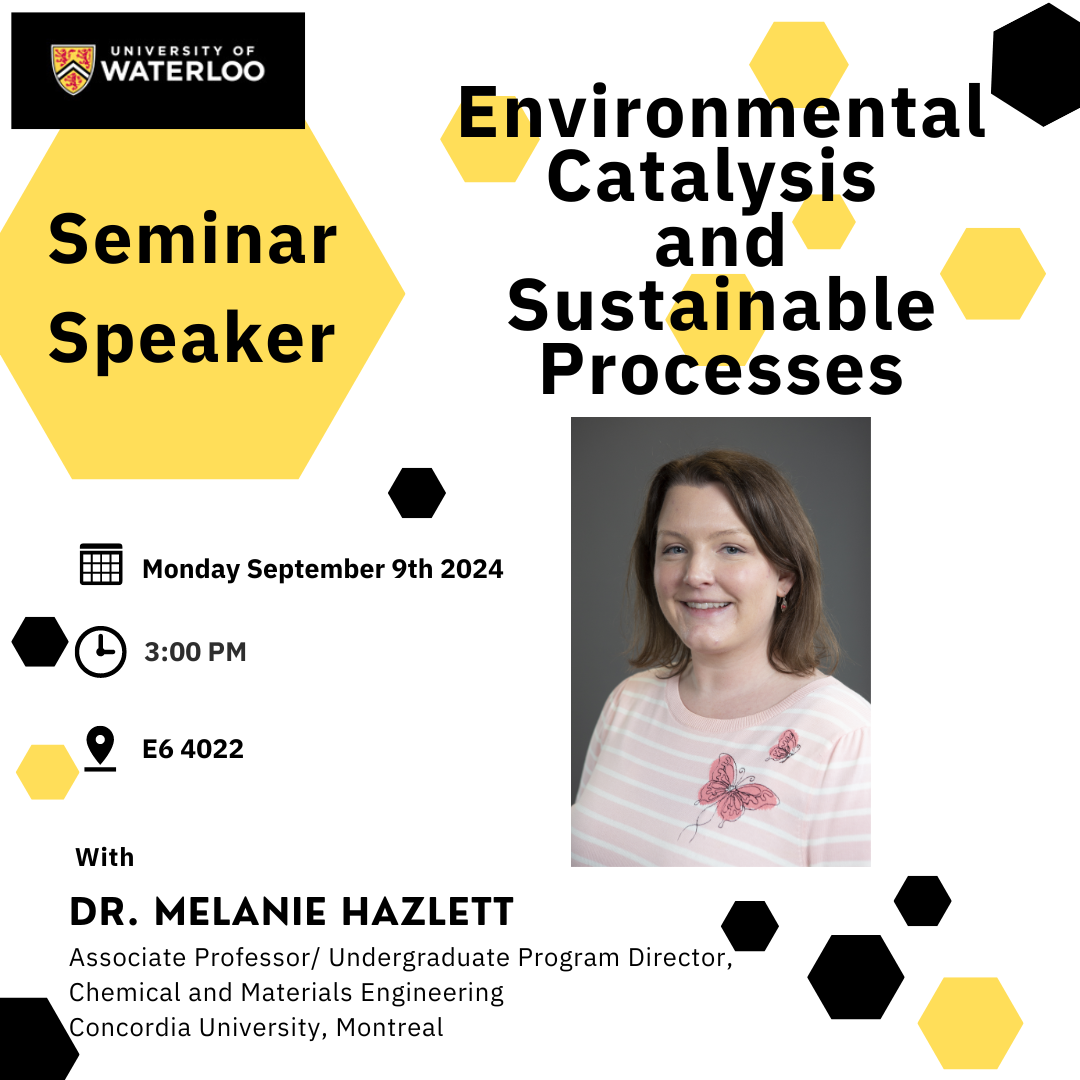
Abstract :
Newer engines operating in lean combustion mode emit less CO2 and can be run on sustainable fuels such as biodiesel, bioethanol, dimethyl ether and other renewables. This seminar will explore two relevant catalytic systems within this context, catalysts for emission control and catalysts for renewable fuel production. A challenge with lean combustion is that it is hard to catalytically reduce nitrogen oxides (NOX) formed because of the oxygen present in the exhaust gas. Low temperature combustion (LTC) engines emit significantly lower NOX compared to standard diesel engines, while at the same time emit much higher concentrations of carbon monoxide (CO) and hydrocarbons. The diesel oxidation catalyst (DOC) is responsible for oxidizing CO and hydrocarbon emissions in the exhaust. Commercial DOCs are typically Pt-Pd/Al2O3. For LTC exhaust conditions, the availability of oxygen on the catalyst surface limits the performance, even in these lean conditions, due to the higher CO and HC levels. The first part of the talk will focus on recent work evaluating the use composite supports of Ce-Zr-Al oxides, and the impact of the improved oxygen storage ability on the DOC performance in CO oxidation. The results from temperature programmed oxidation (TPO) and Diffuse Reflectance Infrared Fourier Transform Spectroscopy (DRIFTS) for CO oxidation under conditions representative of LTC emissions will be shared. Composite supports were prepared using a co-precipitation method and Pt-Pd were deposited using the co-impregnation incipient wetness method to synthesize bimetallic Pt-Pd/ CexZr(1-x)O2-Al2O3 DOCs. In the second part of the seminar, recently published work on zeolite catalysts for methanol dehydration to dimethyl ether will be explored. DME, a potential sustainable fuel, can be produced from green hydrogen and CO2 from direct air capture through methanol as an intermediate. This research focuses on KFI and RHO type zeolites as catalysts for methanol dehydration to DME. The zeolite properties, including crystal structure, particle morphology, and surface acidity, were evaluated using characterization techniques, and their catalytic activity and stability were evaluated on a bench scale packed bed reactor. The results show that these RHO and KFI are very active at low temperatures (<200 °C) compared to other benchmark catalysts for this reaction, which is relevant for a direct production process from captured CO2.
Biography:
Dr. Melanie Hazlett is an Associate Professor, and the Undergraduate Program Director, in Chemical and Materials Engineering at Concordia University, located in Montreal, Quebec. She received her B.A.Sc. in Chemical Engineering from the University of Waterloo (UW) in 2012 and her Ph.D. in Chemical Engineering from the University of Houston (UH) in 2016. Under the supervision of Dr. William Epling, her Ph.D. research focused on understanding Pt-Pd/Al2O3 oxidation catalysts for reducing diesel engine carbon monoxide and hydrocarbon emissions by evaluating reaction mechanisms and performance on catalyst with varying Pt:Pd ratios using bench scale reaction tests, in situ spectroscopy, and other characterization techniques. Subsequently, Dr. Hazlett worked as a postdoctoral associate at the University of Calgary and a Lecturer at the University of Waterloo before starting her current position at Concordia University in 2020. Dr. Hazlett has published nineteen peer reviewed publications, including a book chapter and two review articles. Her most cited paper, “Kinetic and Mechanistic Study of Bimetallic Pt-Pd/Al2O3 Catalysts for CO and C3H6 Oxidation”, has received over 130 citations since publication in 2017 and was completed during her Ph.D. at UH in collaboration with scientists at the Oak Ridge National Laboratory. Her review paper, “Heterogeneous Catalyst Design: Zoned and Layered Catalysts in Diesel Vehicle After-treatment Monolith Reactors”, was acknowledged as one of the most downloaded articles from the Canadian Journal of Chemical Engineering in 2018-2019.